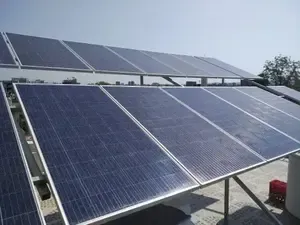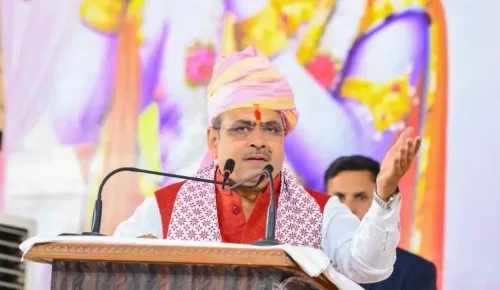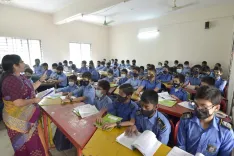Haryana Installs 9,609 Rooftop Solar Systems

Chandigarh, Dec 12 (NationPress) A remarkable 9,609 rooftop solar systems have been established in Haryana, generating an impressive 45.90 MW of power.
This information was revealed during a meeting chaired by Chief Secretary Vivek to evaluate the PM Surya Ghar Muft Bijli Yojana.
The government has allocated Rs 52.54 crore in subsidies to beneficiaries as part of its initiative to promote solar energy. The state is prioritizing the installation of solar power plants on government buildings, with the Public Works Department (PWD) creating a centralized portal to enhance data management of public properties, according to an official statement.
Surveys have been completed for 3,011 buildings, revealing a potential solar generation capacity of 91.78 MW thus far. The Department of New and Renewable Energy has called for bids for an 8.4 MW grid-connected rooftop solar initiative under the CAPEX model.
Moreover, the government plans to establish a model solar village in each district with support from the Ministry of New and Renewable Energy, showcasing the transformative benefits of solar energy in rural communities.
The initiative aims to facilitate technologies such as solar-powered home lighting, solar water systems in villages, solar pumps for agriculture, and the installation of solar streetlights.
The Chief Secretary emphasized that banks will play a crucial role in fulfilling the objectives of this scheme. It was noted that Haryana has trained over 2,700 students in ITIs, providing an industry-centric curriculum for solar equipment installation.
Additionally, the state has 100 ITI master trainers to streamline the installation process at the grassroots level.
The PM Surya Ghar Muft Bijli Yojana aims to deliver free electricity to one crore households across India.
Through this scheme, central financial assistance is available to domestic electricity consumers, as well as state financial assistance (SFA) for Antyodaya families on a first-come, first-served basis. The project aims to foster green and clean energy access in villages, empowering communities to become more self-sufficient in addressing their energy requirements while reducing electricity expenses.









